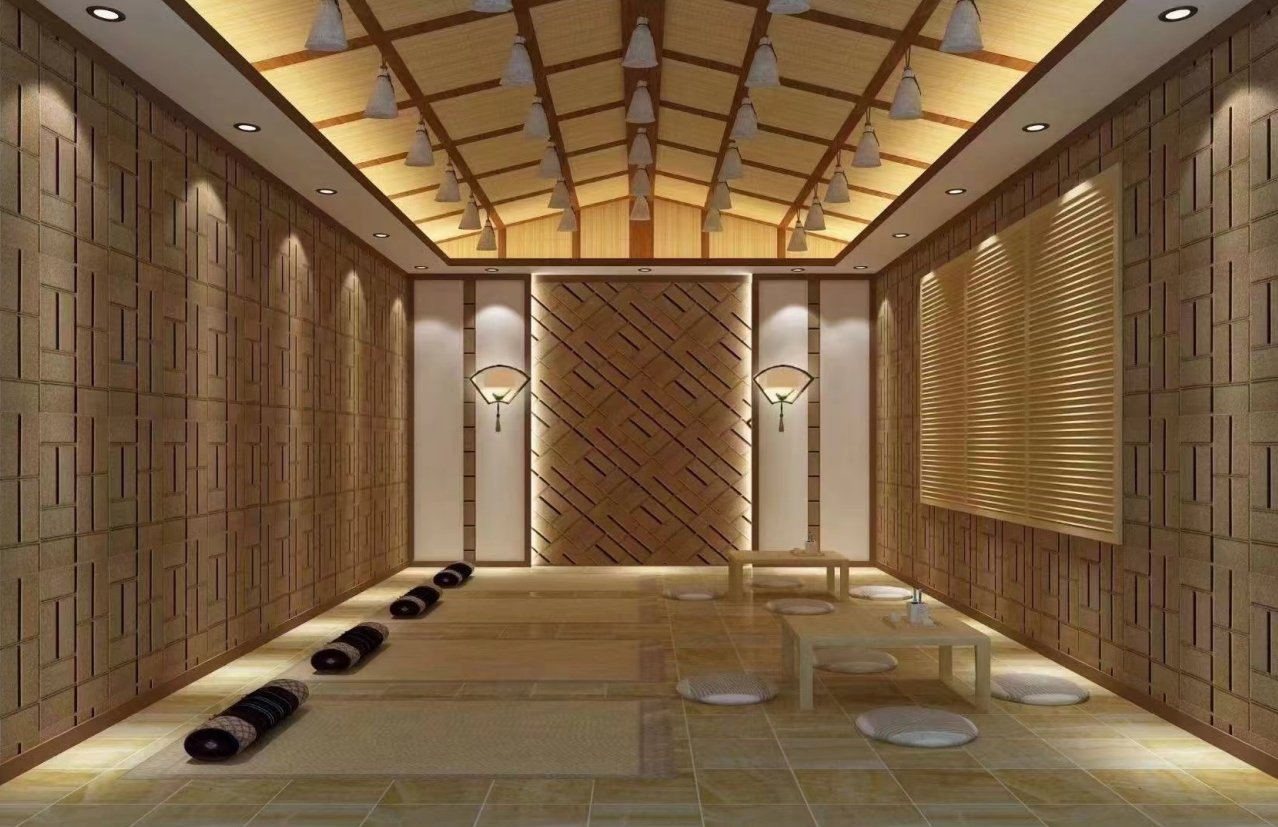
Sauna rooms are a popular place for relaxation and rejuvenation. However, when it comes to selecting flooring materials for sauna rooms, preventing slipping is of utmost importance to ensure the safety of users. There are several special considerations to keep in mind.
One of the key factors is the material's ability to withstand the high levels of moisture and humidity present in a sauna. Saunas typically have a humid environment due to the steam and heat. Materials that are prone to warping, rotting, or deteriorating in such conditions should be avoided. For example, some hardwoods may not be the best choice as they can absorb moisture and lose their integrity over time. Instead, look for flooring materials that are specifically designed to resist moisture, such as ceramic tiles or certain types of synthetic materials. Ceramic tiles are non-porous and can handle the wet environment well. They also provide a stable surface, reducing the risk of slipping when wet.
The surface texture of the flooring plays a crucial role in preventing slips. A rough or textured surface provides better traction than a smooth one. Materials with a slightly abrasive surface can help users maintain their footing, even when the floor is wet from condensation or spilled water. For instance, textured rubber flooring can be a good option. It offers good grip and is also relatively soft underfoot, providing some comfort. Another option could be anti-slip vinyl flooring, which often has a patterned surface that increases friction. When choosing a flooring with a texture, it's important to ensure that it is not too rough to cause discomfort or damage to bare feet. A balance between sufficient traction and comfort is essential.
In a sauna room, the flooring is exposed to high temperatures. The material should be able to withstand these temperature changes without cracking, deforming, or losing its properties. Some materials may expand or contract significantly with heat, which could lead to an uneven surface and increase the risk of slipping. Materials like stone or porcelain tiles are known for their thermal stability. They can handle the heat well and remain in good condition. Additionally, make sure that any adhesives or grouts used with the flooring are also heat-resistant to ensure the integrity of the installation.
Easy maintenance and cleanability are also important considerations. Sauna floors need to be regularly cleaned to remove dirt, sweat, and any other residues. The flooring material should be easy to clean without losing its anti-slip properties. For example, smooth ceramic tiles may be easier to clean but could become slippery when wet if not properly maintained. On the other hand, some textured materials may trap dirt and require more effort to clean thoroughly. Look for flooring options that are both easy to clean and maintain their anti-slip characteristics over time. Consider materials that can be wiped down easily and are resistant to staining. Regular cleaning and proper maintenance not only ensure safety but also prolong the life of the flooring.
The way the flooring is installed can also affect its slip resistance. Ensure that the installation is done correctly and securely to avoid any gaps or unevenness that could cause tripping or slipping. For example, when installing tiles, make sure they are laid evenly and the grout lines are filled properly. If using a floating floor system, ensure that the joints are tight and the flooring is stable. Additionally, consider using anti-slip underlays or mats beneath the flooring if possible. These can provide an extra layer of protection and increase traction. Proper installation not only enhances the safety of the flooring but also contributes to its overall durability and performance.

